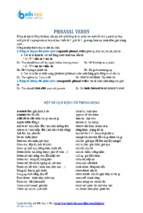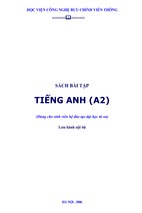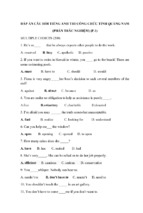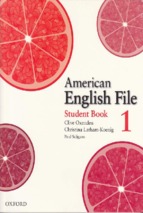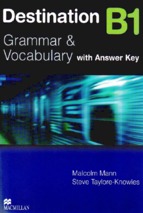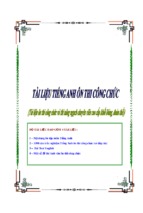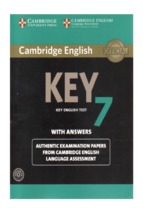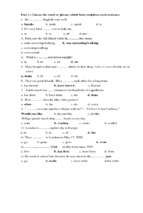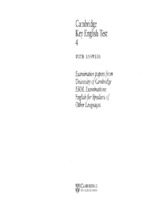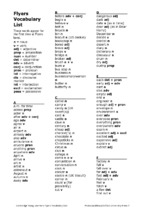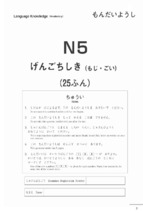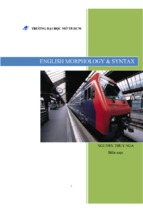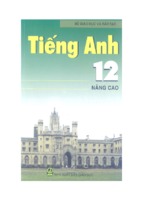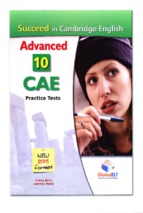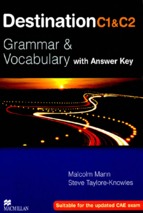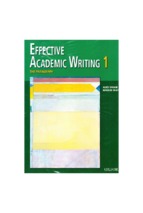penguin_dictionary_of_american_english_usage_and_style
N
Names of products. See Trademarks.
Names, plural. See Plurals and singulars, 2H, K.
nanus, which came from the Greek
nanos. The words mean dwarf.
See also BILLION.
NATIONALITY. See RACE and
NATIONALITY.
NANO- prefix. Nano- is a combining form meaning billionth (in the
American sense: one part in
1,000,000,000). It is used in scientific
contexts. A nanocurie is one billionth of
a curie. A nanogram is one billionth of a
gram. A nanometer is one billionth of a
meter. A nanosecond is one billionth of
a second. Although it is a theoretical
unit and brief beyond perception, it has
been seized by nonscientists for displays
of verbal extravagance.
A journalist said, in a TV forum, that
a political adviser had worked for a candidate, not for a day or a week, but “for
a nanosecond.” The host of a radio talk
show said, “Anyone who can think for
more than a nanosecond knows how
specious that whole line of argumentation [for natural birth control] is.” A
headline in a full-page, full-color magazine ad for an employment service read,
“Opportunity Knocks Every Other
Nanosecond In Silicon Valley.” Perhaps
the company felt that “Every Nanosecond” would be overdoing it. Still, a hint
of 500 million jobs every second depreciated the ad’s credibility.
Nano- was drawn from the Latin
242
names of products
NATURAL GAS. See GAS.
NAUSEATED and NAUSEOUS.
The title “Feeling Nauseous” flashed on
the television screen several times to announce a forthcoming report on motion
sickness. Nauseated was needed. “Nauseous,” although common in conversation, is improper for more formal use.
Nauseated (adjective) means suffering
from nausea (noun), a feeling of sickness
in the stomach. “I feel nauseated.”
That which is nauseous (adjective)
produces nausea. “It’s a nauseous gas.”
A synonym is nauseating.
A person can be nauseated without
being nauseous in the same way that a
person can be endangered, periled, or
poisoned without being dangerous, perilous, or poisonous.
To nauseate (verb, transitive) someone is to produce nausea in the person.
“The gas nauseates me.” / “The rough
sea has nauseated us.” Less common relatives are nauseation and nauseousness
(nouns) and nauseatingly and nauseously (adverbs).
All those n-words come from the
nee
Greek nausia, meaning seasickness. It
stems from naus, ship, the origin of our
word nautical.
NAUTICAL MILE. See KNOT.
NAVAL and NAVEL. Three food
stores sold “NAVAL” oranges. So indicated a newspaper advertisement, a window sign, and sales receipts. None of the
stores suggested any connection between
the navy and the oranges. (For instance,
“These vitamin-rich fruits are good for
the high C’s, a sweet treat for the fleet!”)
Hence we can assume that they all misspelled what should have been NAVEL.
A seedless orange that bears a depression resembling a navel is called a navel
orange. The navel (noun) is the mark on
the abdomen representing the place
where the umbilical cord was connected
to the fetus. Naval (adjective), as in
naval officer, pertains to a navy. If you
need a memory aid, you can think of the
a’s in anchors aweigh.
NEAR MISS. “Canadian Jet in NearMiss,” a headline said. The incident may
be described as a near-accident, a neardisaster, or a near-tragedy, but it was an
actual miss.
When near is tied to the noun with a
hyphen, it implies that the accident, disaster, tragedy, or other incident almost
occurred. It came close to occurring
but was barely avoided. The miss was
not avoided. What should have been
avoided was the hyphen—or, better yet,
the whole phrase.
What about these two headlines, with
no hyphen?—“Near Miss for Elizabeth
Dole” and “Near Miss Reported in
Smoke.” Near can also mean narrow. As
an example, at least four dictionaries
give “near escape.” So we cannot condemn whoever wrote those two headlines. But why use an expression that can
be confusing? Some readers may not
know whether a “near escape from
243
prison” was an escape or not. As for listeners: oral reports have no punctuation.
There are better ways to express the
idea of a narrowly averted air accident,
or other mishap, as in the following examples. An article was headed, “Planes
Just Miss Collision Over Sea.” One sentence of the text said, “Both crews
planned to file official near-collision reports with the F.A.A.” The Dole story
said that a plane carrying her “was involved in a near-collision with another
aircraft.”
NEAT. Nothing is wrong with a neat
home, desk, or person—one that is
spick-and-span, orderly, uncluttered. A
neat trick or job is performed with
adroitness, deftness, precision. And if
you drink whiskey neat, undiluted, you
can get drunk quickly.
On the other hand, “neat” in the juvenile sense is slang: like “cool,” an allpurpose
adjective
of
approval,
synonymous with “keen,” “groovy,”
and “swell” from earlier eras. Adults
have been perpetuating the childish use
of “neat.”
In response to a news report of a
robot designed to save lives by destroying land mines, a young woman at a TV
anchor desk made this penetrating comment: “That’s pretty neat.”
On the same day, also on TV, a noted
critic expressed his discerning appraisal
of the Theremin, the electronic musical
instrument: “It sounds neat.”
A book instructs computer users that
a certain program “has a neat way to
change text” and that “you can do all
kinds of neat things with headers. . . .”
See also COOL.
NEE. Nee or née, pronounced NAY,
means born, as it does in French. It is
used to introduce the maiden surname of
a married woman, for instance “I am
Gladys Goldman, née O’Brien.” In strict
use, it is not followed by the woman’s
244
needless to say
given name, only by her name at birth:
her family name.
A legend under a published photograph identified a governor with “Mrs.
Thomas Pattinson, nee Marcy Taylor,”
who under her original name gained
celebrity for a valorous act. Formerly
would have been preferable, because the
given name needed to be mentioned but
did not properly go with “nee.”
See also BORN with name.
NEEDLESS
TO
SAY. See OF
COURSE, 3.
Negatives. See “AIN’T”; “AREN’T
I?”; AS, 4; BECAUSE, 1; BUT, 6; Contractions, 2; Double negative; Ellipsis;
FLAMMABLE (etc.); Infinitive, 4; LIKE,
1; NEITHER; NEVER MIND; NO
CHOICE; NO WAY; NONE; NOR;
NOT; NOT ABOUT TO; NOT ONLY;
NOT TO MENTION; PROOFREAD
(etc.); REALLY (end); Reversal of meaning, 1; THAT, ALL THAT; TOO, 1;
TO SAY NOTHING OF; UNLIKE;
WHICH, 1; WILLY-NILLY.
NEITHER. 1. Equation. 2. Negativity. 3. Number and person.
1. Equation
Neither . . . nor must connect two
equal things. So must either . . . or and
similar forms (correlative conjunctions).
One side must be grammatically parallel
to the other. If a verb follows neither, a
verb follows nor; if a noun, a noun; and
so on. This quotation is aberrant:
In a news conference, the Pravda
editor, Ivan T. Frolov, also vowed that
under his direction Pravda would neither cater to conservatives nor radicals. . . .
The sentence is not logical. It says
that Pravda would neither “cater” (verb)
nor “radicals” (noun). “Neither” and
“nor” are followed by different parts of
speech.
The simplest way to fix the sentence is
to exchange the positions of “neither”
and “cater to,” thereby equating noun
and noun: “. . . Pravda would cater to
neither conservatives [noun] nor radicals
[noun]. . . .” Another way is to exchange
“neither” and “cater” and add another
to to the “nor” side, thereby equating
prepositional phrases: “. . . Pravda
would cater neither to conservatives nor
to radicals. . . .”
Neither does not go with “or.” However, if nor introduces two closely related
nouns, or may connect them: “Neither
Bennett nor Johnson or his wife was in
the house when the fire broke out.”
See also NOR.
2. Negativity
Neither without nor means not either
(adjective) or not either one (pronoun).
Respective examples: “She selected neither suitor” and “She selected neither.”
Inasmuch as neither carries a negative
meaning, it is wrong in a sentence like
this, which has another negative: “I
didn’t go neither.” Use either to avoid a
double negative.
Two dialogues from a situation comedy follow. Each response has two
words, both wrong.
[Elaine:] I haven’t been eating anything different.
[Jerry:] Me either.
[Mother:] I’ve never seen your arm
move like that.
[Father:] Me either.
The negative does not carry over from
the first speaker to the second. The latter
needs his own negative, whether neither
or another n-word. Among correct responses that could have been put in the
script are “I neither” / “Neither have I” /
“Nor have I” / Jerry: “I haven’t either” /
never mind
Father: “I’ve never seen it either.” (“Me
either” might at best be defended as an
ellipsis, or a short form, for a sentence
that nobody would be likely to utter:
“Me haven’t been eating anything different either” or “Me have never seen it either.” Maybe Tarzan could get away
with “Me” instead of I for the subject of
a sentence, but native speakers of English
should know better. See Pronouns, 10.)
3. Number and person
Neither without nor is construed as
singular. A verb that follows must be singular: “Only two of the suits are left and
neither fits me” (not “fit”).
Any object of the verb also is singular
if it would normally be singular for an
individual subject. This is from a news
article:
Neither of the women, who were said
to be babysitting the children, was
wearing seat belts. . . .
The verb, “was wearing,” is correctly
singular; but the object is inconsistently
plural: “seat belts.” Neither was wearing
a seat belt. (The material between the
commas is irrelevant to the main
thought and belongs in another sentence.)
Neither without nor pertains to only
two things or two persons, not to three
or more. “Neither of the two boys” /
“neither of the couple” / “neither of the
pair” are correct. “Her feelings were
very hurt that neither of the three of us
showed up” (said by a caller to a radio
psychologist) is incorrect. See NONE, 1.
The neither . . . nor construction
sometimes applies to more than two
things or two persons: “Neither snow,
nor rain, nor heat, nor gloom of night
stays these couriers. . . .” Note that nor
is repeated for each item. This excerpt
from a book is not idiomatic:
. . . Neither the President, Congress as
a whole, nor either of its houses may
245
constitutionally defeat action by the
rest of the government to meet the
country’s responsibilities abroad.
When nouns that immediately follow
neither and nor are singular, the verb is
singular: “Neither Jim nor Al earns
much money” (not “earn”). When both
nouns are plural, the verb is plural:
“Neither gems nor precious metals were
found in the wreckage.”
When the nouns differ in number,
should the verb be singular or plural? If
the plural noun is nearer to the verb than
the singular noun, the verb should be
plural: “Neither his wife nor his sisters
like his politics.” But if the singular noun
is nearer, a problem arises. In the sentence, “Neither his sisters nor his wife
———his politics,” some authorities
would allow likes, others like. The advice here is to place the plural noun
(“sisters”) second, as in the former example, or to recast the sentence, e.g.:
“His wife and sisters dislike his politics.”
Any possessive pronoun that follows
nor also must agree in number with the
verb: “Neither Charles nor Susan owns
his or her own home” (not “their”).
A final puzzle concerns the verb following a personal pronoun. An authority lets the nearer subject govern the
verb: “Neither he nor I am at fault.” /
“Neither I nor he is at fault.” But revision may be better: “He is not at fault,
and neither am I.”
See also EITHER.
NEVER MIND. A weekly’s front
page contained the headline “Nevermind the English” (referring to competition from New Zealand in popular
music). In a column in a daily, one read,
“Nevermind that I had repeatedly been
warned . . .” (not to lean too far back in
a chair).
Never mind is a phrase of two words:
the adverb never, meaning at no time or
not at all; and the verb mind, meaning to
246
nevertheless
pay attention to or care about someone
or something (transitive) or to take notice or be concerned (intransitive).
The journalists were probably unfamiliar with the song “Never Mind the
Why and Wherefore”—stressing mind—
from Gilbert and Sullivan’s H.M.S.
Pinafore.
NEVERTHELESS. See BUT, 5.
NEW RECORD. See RECORD.
NICKEL. The metallic element symbolized by Ni is nickel. The five-cent
piece is a nickel, after one of its metals.
Both end in -el only.
In defining “nickle,” Webster’s has
been fickle. It was a local British term for
“the green woodpecker” in the second
dictionary. Webster’s Third ignores the
bird and calls “nickle” a “var of
NICKEL,” instead of the misspelling it
is.
NIL and NILL. See WILLY-NILLY.
NISEI. A biography harks back to
World War II and
the case of the 112,000 Nisei, over
75,000 of them native-born American
citizens, who were removed from
their homes on the West Coast and
sent to “relocation centers” in the
mountain states. . . .
Those who were born in Japan should
not be called “Nisei.” An immigrant to
the United States from Japan is an Issei;
the word is Japanese for first generation.
Nisei, meaning second generation, refers
to a U.S.-born child of those immigrants.
A U.S.-born grandchild of the immigrants is a Sansei, which means third
generation. Each term may be used unchanged as a plural, or s may be added:
Isseis, Niseis, and Sanseis.
If all of that looks too complicated,
one may refer to Japanese immigrants,
children or grandchildren of Japanese
immigrants, or Americans of Japanese
ancestry.
NOBEL PRIZE. Two scientists at the
University of California School of
Medicine were being honored for a discovery concerning cancer cells. “Today
they won the Nobel Peace Prize for
Medicine,” a newscaster announced on
television. She was confused. The Dalai
Lama of Tibet won the Nobel Peace
Prize that year. His activities had nothing
to do with medical discoveries, and the
research of the scientists, Bishop and
Varmus, had nothing to do with the promotion of peace.
The peace prize is decided and
awarded in Norway; the prize in
medicine or physiology, in Sweden along
with separate prizes for accomplishments in chemistry, economics, literature, and physics. A bequest of Alfred B.
Nobel, Swedish chemist and the inventor
of dynamite, established the Nobel
Prizes in five fields. They were first
awarded in 1901. The Bank of Sweden
added the economics prize in 1969. Winners get money and medals.
NOBODY. See Pronouns, 2C.
NO CHOICE. A restaurant may offer no choice of soups. A dictatorship
may offer no choice in an election. But “I
had no choice”—or “We have no
choice” or a variation on that theme—is
also a hoary excuse for gory acts.
Hitler said, on launching World War
II, “I have no other choice” than to fight
Poland. In the United States, “We have
no choice” was Theodore Roosevelt’s rationale for the nation’s asserting its
power abroad.
At a time of supposed peace, a national newspaper reported that U.S.
planes had attacked Serbian planes. Its
explanation was that the Serbs had
none
flown contrary to the United Nations’
wishes, leaving the Americans “little
choice but to blow them out of the sky”
(a non sequitur). “Little choice”? The
Americans had the choice of not blowing
them out of the sky; the choice of talking
instead of shooting; the choice of going
home. Life presents most of us with innumerable choices, and national leaders
generally have more choices than the rest
of us.
A local newspaper reported that
the mayor “felt he had no choice but to
fire almost his entire Library Commission. . . .” The headline read, “Jordan
Didn’t Have Choice in ‘Massacre.’ ” But
as a city’s chief executive, he had the
choice of not doing it. By the way, to
quote a politician’s self-serving blather is
excusable; to headline it without attribution, thus presenting it as fact, is not.
Nominative case. See Pronouns, 10.
Nondefining clause. See THAT and
WHICH.
NONE. 1. Number. 2. Other uses.
1. Number
None (pronoun) may be construed as
singular or plural or either, depending on
its meaning in a sentence. A pedagogic
and journalistic rule has long held it to
be singular only. Indeed its original version, in Old English, nan, meant not one:
it was a fusion of ne, not, and an, one.
Yet most authorities accept both constructions, and literature records both.
In the Bible we find both “trouble is near
and there is none to help” and “none
come to the appointed feasts.” Dryden
wrote that “none but the brave deserves
the fair” and Tennyson, “I hear a voice,
but none are there.”
None may mean not one, emphasizing singularity: “I asked each person,
and none was aware of the problem.”
Instead of none, however, using not one
247
or not a single one may be a stronger
way to make the point. Unquestionably
none is singular when it means not any
amount or part: “None of the merchandise is domestic.” / “She says none of the
advice helps her.”
None may be plural when it means
not any (people or things): “Of all the
people in our town, none appear more
industrious than the Lees.” At times it
must be plural: “None of these contenders have much fondness for one another.” Using “has” would conflict with
“one another,” which is plural. “None
of the troops were completely prepared
for their mission abroad.” Nobody
would be speaking of one “troop.”
At times none may be regarded as either singular or plural. “Of the models
advertised, none suits me” or “none suit
me.” Singularity is possible in this sentence: “None of the houses is for sale.”
But “houses are” has fewer s’s, a consideration if the sentence is to be spoken.
Whichever construction is selected,
any related verb and pronoun must
agree in number. “None of the machines
still works as well as it used to” or
“work as well as they used to” / “None
of the men has his orders yet” or “have
their orders yet.” (See also Pronouns, 2.)
Whether you deem none to be singular or plural in a particular sentence,
stick with your decision. The quotation
is from a short story in a magazine.
None of these players was over 18,
and they were trying too hard either
for the $100 prize or to impress the
girls gathering behind them.
Were should replace “was,” which is
inconsistent with “they were” and
“them.”
None meaning not any applies to
three or more people or things, not to
two. The phrase “none of the three cats”
is right but “none of the two cats” is
wrong. See NEITHER, 3.
248
nonesuch, nonetheless, none too, etc.
2. Other uses
None (adjective) meaning no is an archaic use that survives in the phrase
none other. “The winner was none other
than my sister.”
A paragon, someone or something
without equal, may be called a nonesuch
(noun). “Caruso was a nonesuch among
singers.”
None, as an adverb, appears in the
following expressions:
• None the less. The phrase none the
less or word nonetheless means
nevertheless or however. “Small in
stature, he was none the less [or
“nonetheless”] skilled in
basketball.”
• None the plus comparative. In a
sentence like “They were none the
wiser,” none means not at all or to
no extent.
• None too. In its understatement, this
phrase serves as mild sarcasm. It can
mean not sufficiently: “This horse is
none too fast.” Sometimes it is
ambiguous, meaning either barely
enough or not quite enough: “We
arrived none too soon.” See also
TOO.
NONESUCH, NONETHELESS,
NONE TOO, etc. See NONE, 2.
NONFLAMMABLE. See FLAMMABLE, INFLAMMABLE, and NONFLAMMABLE.
“NO NOTHING.” See Double negative, 1.
NOR. 1. How it is used. 2. NOR and
OR.
1. How it is used
Nor (conjunction) often serves as the
negative version of or. It is most common in the construction neither . . . nor:
“This is neither fish nor fowl.” In such a
construction, nor is always right. It is no
more correct to say “neither . . . or” than
to say “either . . . nor.”
Nor, like or, links alternatives. When
the alternatives make up the subject of a
sentence and each alternative is singular,
the verb too must be singular. Example:
“Neither Dan nor Tom speaks French”
(not “speak”). When the alternatives are
plural, the verb is plural. When the alternatives differ in number, complications
arise. See NEITHER, 3.
A sentence without neither may still
take nor. Example: “The telephone has
not rung, nor has any mail arrived.”
Such a sentence contains two thoughts,
or ideas, and the negative force of the
not would not carry over to the second
thought without help. Nor furnishes that
help. (Some may find this construction
difficult to master or too formal for their
tastes. The second clause may be expressed in other ways, e.g., “and no mail
has arrived.”)
“Will you condemn him . . . who
shows no partiality to princes, nor regards the rich more than the poor . . . ?”
In that Biblical example, the no unaided
would have no effect on the idea about
the rich and the poor. Nor negates the
action of the verb regards. “Or” would
not do it.
See also NEITHER, 1, 2.
Nonrestrictive clause. See THAT
and WHICH.
NOON. See A.M., P.M., NOON,
MIDNIGHT.
NO ONE. See ONE as pronoun, 3;
Pronouns, 2C; Reversal of meaning, 1.
2. NOR and OR
A rather common error is to use
“nor” redundantly in place of or. Generally you use or when (1) the sentence is a
simple one (that is, it has essentially one
thought) and (2) the negative word or
phrase fits each item.
north pole and magnetic pole
A book says a little airplane “didn’t
have a rudder, nor a tailplane.” Many
grammarians would disapprove of the
sentence, considering it to contain a double negative. (Literally neither . . . nor
amounts to a double negative; nevertheless it is well established.) A better phrasing is “didn’t have a rudder or a
tailplane.” The sentence is simple, and
the one negative (“didn’t have”) fits each
item (each aeronautic part).
An alternative phrasing is “didn’t
have a rudder, nor did it have a tailplane.” The sentence no longer is a simple one (a clause has been added), and
no longer does the one negative cover it
all. Under those circumstances, nor is the
conjunction to use.
In another book we read: “His son’s
literary success would never cheer Lord
Auchinleck nor improve relations between them.” Change “nor” to or. The
sentence is simple, and the first negative
(“never”) fits each item (“cheer” and
“improve”).
Some grammarians would condone
the use of nor in each excerpt as a way of
stressing a difference between the two
items. It conforms with the practice of
some past writers, including Shakespeare and Shaw. Except for those who
fancy themselves in that class, the safest
course is to follow the rules.
See also OR.
NORMALCY. A myth that “President Harding coined ‘normalcy’ from ignorance of ‘normality’ ” has been
perpetuated since the twenties. Two authors of a handbook for writers repeated
it (in the above quotation). So did a history teacher of mine in high school. It
dates at least from 1929, when a writer
alleged in a tract of the Society for Pure
English:
If . . . ‘normalcy’ is ever to become an
accepted word it will presumably be
249
because the late President Harding did
not know any better.
The Oxford English Dictionary traces
normalcy to a mathematics dictionary
published in 1857—eight years before
Harding was born.
It is the persistent objection to normalcy, not the use of the word, that is
based on ignorance. The word is a valid
alternative to normality, but be advised
of that objection.
The statement below was uttered in
1920 by the man who occupied the
White House from 1921 to 1923. It is
technically impeccable, perhaps too
slick; it has the earmarks of a speech
writer.
America’s present need is not heroics
but healing, not nostrums but normalcy, not revolution but restoration.
NORTH POLE and MAGNETIC
POLE. At a national meeting of mathematics teachers, a salesman was selling
compasses. “These compasses draw circles; they won’t point to the North
Pole,” a columnist wrote.
The magnetic compass, the type of
compass that he probably was alluding
to, does not point to the North Pole. It
points to the North Magnetic Pole (or
Magnetic North Pole). The location of
the latter varies from time to time, but
atlases published in the 1990s place it
amid the Queen Elizabeth Islands in the
waters of northern Canada, some 800
miles from the true North Pole. (There is
another type of navigational compass,
the gyroscopic compass, used on large
ships, which does point to the true
North Pole, although no one would expect it to be for sale at a teachers’ convention.)
Just as the earth has two poles, north
and south, it has two magnetic poles,
north and south. Either end of a magnet
also is called a magnetic pole.
250
not
NOT. 1. Ambiguity. 2. Problems of
placement.
1. Ambiguity
The use of this adverb requires care.
Usually not is definite in its meaning:
negation, refusal, in no way, to no degree, no. Yet in some contexts, as indicated below, not can permit widely
varying interpretations.
A. NOT ALL and ALL . . . NOT
Not all . . . are is different from
all . . . are not. The latter invites confusion. Normally the place for not is immediately before the word or phrase that
it qualifies.
These two sentences do not have the
same meaning:
• Not all lawyers are truthful.
• All lawyers are not truthful.
The first means that some are untruthful. The second means that all are untruthful; that is the literal meaning,
although it may not be the intended
meaning.
The problem is essentially the same
when not is separated from every plus
noun, everyone, or everything. “Not every applicant is qualified” (some are unqualified) is far different from “Every
applicant is not qualified” (literally, all
are unqualified).
A book says (about writing an article): “Everything that will go into it is
not in your notebook.” The authors
meant: “Not everything that will go into
it is in your notebook.”
B. NOT TOO
The standard meaning of not too is
not excessively. It can be confused with a
colloquial meaning: not sufficiently.
“That chinaware is not too fancy for a
holiday dinner,” says Gertrude. Does she
approve or disapprove of the dishes?
The standard meaning is that they are
not excessively fancy. The colloquial
meaning is that they are not sufficiently
fancy.
Fred, a farmer, says, “We haven’t had
too much rain this year.” (Of course -n’t
is a contraction of not.) He could be either pleased or displeased by the
weather. If rain was excessive last year
and flooded his farm but has been normal this year, Fred may be speaking literally and expressing his relief. On the
other hand, if there is a drought,
“haven’t had too much” may be his way
of saying “haven’t had enough.”
See also TOO.
C. NOT with AS
It can be confusing to follow not with
as, in the manner of this example:
“Columbus was not the first European
to discover America, as many people believe.” Do “many people” believe that
he was or that he was not? Rephrase it.
Depending on meaning, you might either
begin with the phrase “Contrary to popular belief, . . .” or end the sentence with
“America” and add a sentence: “Many
people now believe that other Europeans
arrived earlier.”
See also AS, 4.
D. NOT with BECAUSE etc.
Whether not applies just to the next
word or to more can be a puzzle. The
sentence is apt to include because.
“He was not hired because of his
background.” Was he hired for another
reason? Or was he turned down, and, if
so, was the reason something in his
background? In either case, rephrasing is
desirable. For example: “He was hired,
not because of his background, but because . . .” or “He was not hired, and
the reason was his background.” If a
sentence has two ideas, they should be
clearly distinguished.
An explanatory phrase without because can create a similar ambiguity.
not
“The bill was not introduced for political reasons.” / “We did not file at Grant’s
request.” Does “not” modify all that follows or just the verb (“introduced” or
“file”)?
See also BECAUSE, 1.
E. NOT with LIKE
This is a problem similar to that of
not with as, though less common. “Alice
is not married, like Betty.” Is Betty married or single?
See also LIKE, 1; UNLIKE, 1.
F. Omission of NOT
The fear of omitting not leads the
press to misrepresent legal proceedings.
It usually reports pleas and verdicts of
not guilty as “innocent.” Not is infrequently forgotten; Reversal of meaning,
1, gives examples.
See also Guilt and innocence, 2.
G. Superfluous NOT
In a complicated sentence, not is
sometimes introduced unnecessarily,
producing a double negative.
“. . . He had found nothing to make
him doubt that H—— was not rightly
convicted.” In other words, he firmly believed that the person was wrongly convicted. That is the opposite of the
intended meaning: Actually he believed
that the conviction was justified. But a
not was erroneously slipped into the sentence, canceling the negative effect of
doubt and reversing the meaning. Omit
not, or rephrase the sentence; for instance: “. . . He had found no reason to
question H———’s conviction.”
See also Double negative.
H. Uncompleted NOT
Sometimes it is unclear what not pertains to. Whatever that is has been omitted.
“The Senate’s current version calls for
spending $2.6 billion for drug enforcement that the House does not.” The
251
House “does not” what? The writer has
left out a necessary verb.
See also Ellipsis.
2. Problems of placement
Referring to the two sides in a labor
dispute, a television reporter said, “They
have been not making any progress.”
The statement is clear, but “have not
been making” would be more idiomatic.
Perhaps he was under the erroneous impression that splitting a verb pair, like
have been, was wrong.
Putting not in the wrong place can
throw a sentence out of kilter; witness
this complex example from a newspaper’s front page:
It was an attempt not to change
President Bush’s mind, which the organizers of the march consider improbable if not impossible, or to
persuade Congress to pass a law,
which they deem unnecessary.
Better: “It was not an attempt to
change. . . .” Thus not modifies “was an
attempt.” The news writer misplaced
“not,” modifying “to change”; a reader
could at first think the organizers attempted to avoid changing the president’s mind. The “which” clauses (with
unclear antecedents and four negatives,
including a second “not”) contribute to
the muddiness.
When a sentence has multiple verbs, it
may not be clear which one not modifies.
It takes some effort to interpret this press
example correctly:
Defense attorney Nancy G——
asked the court to dismiss that charge
because the ruling involved a third
party who struck a pregnant woman,
not the mother herself [emphasis
added].
Does the emphasized phrase contrast
with “involved a third party” or with
252
not about to
“struck a pregnant woman”? A reader at
first could reasonably think it refers to
the latter, because “woman” immediately precedes “not.” However, the story
suggests that the other interpretation is
correct. It would be less ambiguous to
say that “the ruling involved, not a pregnant woman, but a third party who
struck a pregnant woman.” (The writer
encouraged confusion by following
“pregnant woman” with “the mother,”
instead of repeating “pregnant woman.”
One could take them to be two people,
for a pregnant woman is not necessarily
a mother. See Synonymic silliness.)
A fad based on a disconnected “not”
appears to be fading away, fortunately.
Someone first makes an outlandish statement; for example, “The President has
ditched his wife and moved in his girl
friend.” After a pause, the single word
“not” follows, supposedly canceling the
fib. If a listener does not stick around for
the “not” or fails to recognize it when so
grossly misplaced, a rumor can take
wing.
Not goes before the to of an infinitive:
“She swore not to reveal their secret,”
instead of “to not.” See Infinitive, 4.
Among entries dealing with not are
BECAUSE, 1; BUT, 6; Contractions, 2;
Double negative; NOT ABOUT TO;
NOT ONLY; NOT TO MENTION;
PROOFREAD, PROOFREADING (example); Reversal of meaning, 1; THAT,
ALL THAT; WHICH, 1 (example).
NOT ABOUT TO. The subtitle of a
magazine article about hotel maids was
a long one:
was curious to find it displayed prominently in a reputedly sophisticated publication representing a city where that
expression was alien.
The standard meaning of about to is
ready to or soon to (do something). In
the negative, the encroachment of the
nonstandard meaning brings problems
of ambiguity. “He is about to leave for
home” is fairly clear. “He is not about to
leave for home,” as broadcast nationally,
is ambiguous. Does it mean that he will
not leave soon (the standard meaning) or
that he is determined not to leave at all
(the nonstandard meaning)?
Even when the meaning is clearer, the
nonstandard phrase is not appropriate in
writing, unless the writer’s intent is to reproduce colloquial, regional speech; and
it can be risky. In the press sample below,
a foreign correspondent used the phrase
in the nonstandard way (the context indicates), using it inappropriately and—
as it turned out—inaccurately:
But the reaction by the authorities
indicated that the Czechoslovak
[Communist] leadership is not about
to take the path chosen in East Germany.
The leadership in Czechoslovakia was
indeed “about to take the path chosen in
East Germany.” Four weeks after the article appeared, it resigned.
NOT ALL THAT. See THAT, ALL
THAT.
“NOT HARDLY.” See Double negative, 3.
If they were going to clean rooms,
they were going to be well paid—so
they struggled for their union. And
they’re not about to give it up.
The phrase “not about to” in the sense
of determined not to or unwilling to (do
something) is colloquial and regional. It
NOTHER. As a legitimate variation
of other, nother is obsolete. It is now dialectal and nonstandard.
A radio announcer, advertising
recorded products, said, “Video is a
whole nother thing.” Correction: “Video
is a whole other thing,” or, better,
not only
“Video is another thing entirely.” Another equals an other. The n is needed
only when the indefinite article adjoins
the o. See A and AN.
NOT JUST, NOT MERELY, NOT
SIMPLY. See NOT ONLY.
NOT ONLY. In using the phrase not
only, watch out for three pitfalls. This
sentence (from a book on marketing) illustrates them:
The franchise not only buys training, but a recognized brand name.
1. Misplacement of not only. The word
only tends to attach itself to whatever
immediately follows. In the sample,
the word following “only” is “buys.”
The writer did not intend to emphasize “buys,” but that is what he has
done. He meant to emphasize “training.” (See also ONLY.)
2. Grammatical imbalance. Not only
and but also are sister (correlative)
conjunctions. The grammatical structures following them must match. In
the sample, the phrase following “not
only” is a verb and its object (“buys
training”) whereas what follows
“but” is a noun phrase (“a recognized
brand name”). The phrases do not
match grammatically.
3. Omission of also (or a synonym). A
sentence like the following does not
need also (or a synonym): “Today I
choose not steak but lobster.” An item
is substituted for another. However,
the next sentence needs the also: “Today I choose not only steak but also
lobster” (or “but lobster too” or as
well or in addition). An item is added
to another.
We correct the quotation by interchanging “not only” and “buys” and by
inserting also:
253
The franchise buys not only training but also a recognized brand name.
Now noun matches noun, and also (adverb) announces an addition. (The
comma is not necessary.)
“The franchise not only buys training
but” would be acceptable if followed by
another verb and its object, e.g., “buys a
recognized brand name also.”
The next (newspaper) example properly contains “also,” but it too misplaces
“not only,” producing a grammatical
imbalance.
The fact that the army fired on Chinese citizens not only shocked the
Chinese people but also large segments of the army. . . .
Again “not only” is followed by a verb
and its object (“shocked the Chinese
people”) whereas “but” is followed by a
noun phrase (“large segments of the
army”). The sentence may be corrected
most simply by interchanging “not
only” and “shocked”:
. . . shocked not only the Chinese
people but also large segments of the
army.
This way, noun matches noun.
Occasionally not only does not need
to be followed by but or by also (or synonym):
• But is unnecessary if the contrast
that it expresses is indicated in
another way; for instance:
“Protecting the environment is not
only good public policy: It can be
good business too.”
• Also (or synonym) is unnecessary
when what follows the but does not
add something substantial but
merely intensifies what came before;
for instance: “He was not only a
poet but a great poet.”
254
notoriety, notorious
The principles that apply to not only
apply also to similar phrases, like not
just, not merely, and not simply. “What
helps agriculture benefits not just farmers but the nation as well.”
hammed Farah Aidid, the Somali faction leader who humiliated the United
States in 1993, was a naturalized
American citizen, not to mention a
United States marine.
NOTORIETY, NOTORIOUS. A
person who is notorious (adjective) is
well known for something bad or objectionable. “The accused is notorious for
his drug dealing.” / “He’s a notorious
liar.” The condition of being notorious is
notoriety (noun).
A Wall Street analyst was introduced
on television as “one man who has
achieved some notoriety for his predictions.” Fame, prominence, or repute
would probably have expressed the
meaning intended by the host, without
insulting his guest.
The featured words should not be
confused with other words beginning
with not-: A person of note has achieved
some notice or notability (nouns), that
is, distinction, eminence, or importance,
but not “notoriety.” The person is notable or noteworthy (adjectives) but not
“notorious.”
The implication of badness may or
may not apply to inanimate objects: “a
notorious gambling house” / “a notoriously [adverb] soft metal.”
Another oddity is the expression “not to
mention.” If one is not to mention something, why does one mention it?
At times the phrase is a colloquial
substitute for and by the way (which
would have suited the first example) or
let alone. At other times its purpose is
unclear; the item or point that it introduces might better be joined to the main
idea by and or or. The second example
could have said the son “was a naturalized American citizen and a United
States marine.” A book on word usage
says of an adverb:
NOT REALLY. See REALLY.
NOT
. . . Where may also be a pronoun or a
noun (not to mention a conjunction).
How about “a pronoun, a noun, or a
conjunction”?
See also TO SAY NOTHING OF;
Verbal unmentionables.
NOT TOO. See TOO.
Nouns. 1. Definition. 2. Noun creations. 3. Number. 4. Omission. 5. Using nouns as adjectives.
THAT. See THAT, ALL
THAT.
NOT TO MENTION. Should we
mention this expression at all? It was
used as follows in a telecast and a newspaper:
These were bikers [motorcyclists] for
Dole, not to mention it was a great
day to go biking.
One of the many oddities in this battered capital is that a son of Gen. Mo-
1. Definition
A noun is the name of something or
someone. These are the main kinds:
• Proper noun (also called proper
name)—the name of a specific
person, place, or thing, spelled with
an initial capital (Gertrude, Chicago,
Acme Laundry).
• Its opposite: common noun (also
called common name)—a name that
represents no specific thing, place,
person, etc. but rather a category
nouns
with multiple specimens (antelope,
planet, noise).
• Abstract noun—the name of an idea,
quality, or state (patience, length,
merriment).
• Its opposite: concrete noun—the
name of an object that one’s senses
can perceive (apricot, robin,
telephone).
• Collective noun—the designation of
a group of things or people (team,
gang, army).
Besides being single words, nouns
may be hyphenated words or groups of
words (will-o’-the-wisp, human being,
scarlet fever).
Among other uses, nouns may be subjects (“Rain is falling”), objects (“He hit
the target”), complements (“That lady is
her mother”), and appositives (“Jim, the
guide, has arrived”). An appositive is a
word or group of words in apposition,
i.e., placed beside another to identify or
explain it. (Guide is a noun in apposition
with Jim. See also Punctuation, 3A, on
commas.)
Some words, like love and set, are
classified both as nouns and verbs. Other
words, although not classified as nouns,
can serve the function of nouns. In the
sentence “I love eating,” the last word is
a gerund, a verb form acting as a noun.
(See Gerund.) A word or group of words
that serves the function of a noun,
whether it is a true noun or its equivalent, is called a substantive.
2. Noun creations
Using an adjective as a noun in place
of a legitimate noun is a contemporary
fad, illustrated as follows.
A commercial for a shampoo said,
“You really can feel the clean.” Asked
what an R movie rating meant to him, a
child said, “It means in some ways more
intense. We like intense.”
Perhaps one cannot expect an advertiser to care about using the noun clean-
255
ness or cleanliness properly or a tenyear-old to know the noun intensity.
However, a radio psychologist should
know politeness. She advised a caller to
“Just turn on the polite.” And a standup comedian should know humility
(even if he does not practice it): He called
Parisians arrogant and added, “If you
want humble, go to Paris, Kentucky.”
Those who put on situation comedies
are guilty of similar distortions, such as a
comedienne’s comment, “It’s not about
cute. It’s about pitiful.” Could she and
her writers all have been ignorant of the
nouns cuteness and pitifulness? Another
comedienne said, “I think there are different types of pretty”—instead of prettiness or beauty. Her counterpart on
another show instructed sonny in the
different types of “proud.” She needed
pride. A supporting actor on still another show said, “If you want common,
you name a kid John.” The noun is commonness.
Clean, intense, polite, humble, cute,
pitiful, pretty, proud, and common are
all adjectives, modifiers of nouns but not
nouns themselves. Some words that are
primarily adjectives legitimately double
as substantives; the nouns they would
modify are understood: a commercial
(announcement); a musical (comedy);
the rich and the poor (people). One may
speak of the humble, but not of wanting
“humble.”
The nouns are ripped more painfully
from some adjective-noun phrases, including classified ads, personal ads, and
gay man; and the adjectives are dubiously made plural: “classifieds” / “personals” / “gays.” (See also GAY, 3.)
News people create some nouns of
their own. In traffic reports, “the roadway is blocked by an overturn” (instead
of overturned vehicle) and “we do have
a stall on Highway 24, eastbound” (not
a place for a horse but a substitute for
stalled vehicle).
“There are more layers of pretend in
256
nouns
‘Waiting for Guffman’ than in most
movies,” a critic wrote. “Pretend” is a
verb. Pertinent nouns include pretense,
pretending, and make-believe.
Nouns are sometimes forced into verbal roles. See Verbs, 2.
3. Number
An elephant has a trunk. Two elephants have two trunks. Who could disagree? Yet the choice between singular
and plural nouns seems to baffle some
people, who figuratively attempt to force
two elephants to accept one trunk. For
example:
Both were from Central America and
had a visa, but they didn’t have a
work permit.
A newspaper erred. Two visitors would
not share one visa or one work permit.
They had visas. They lacked work permits. The thing possessed would be singular if the subject of the sentence were
singular; for instance: “Each man had a
visa but neither had a work permit.” Another paper made a similar mistake:
SEG Technologies Inc. in Philadelphia
even invites people to watch their PC
being assembled.
Just one “PC” for all to share? Make it
“their PCs.” A number of people have a
number of the devices, which are, after
all, personal computers.
A newscaster said, “Cats seem to have
a mind of their own.” There is no collective feline mind. “Cats seem to have
minds of their own” or “A cat seems to
have a mind of its own.”
An author believes that “editors
should be required to write a novel.”
They would not all collaborate on the
same novel. Either “editors should . . .
write novels” or “an editor should . . .
write a novel.”
The rule that plural subjects possess
plural things has exceptions:
• Individuals that constitute a subject
may possess something in common:
“The Smiths had a lease.” / “Agnes
and John met at their college.”
• If what is possessed is not a concrete
item but an abstract quality, the
singular will do: “The cars gained
speed.” / “The boys’ anger
subsided.”
Propriety of number is more than a
matter of tidiness. It makes a difference
whether Tom and Mary are looking for
apartments or an apartment.
A grammar rightly points out a bad
shift in pronouns: “. . . A [job-seeking]
person who interviews a company is
more successful . . . than one who waits
for a company to interview them.” This is
given as correct: “. . . People who interview companies are more successful . . .
than those who wait for a company to interview them.” But the second “company” should be made plural too.
Two statements on the radio exemplify an occasional mistake: “We can
provide that [neutering] service for dog
and cats.” / “Doctors have more bag of
tricks. . . .” Dogs and cats. Bags of
tricks. Making the final noun plural is
not enough.
See also Collective nouns; ONE OF, 3.
4. Omission
In a complicated sentence telling of
multiple actions, sometimes it is not immediately clear who or what is performing one of the actions. The writer or
speaker has left out a subject (the doer of
an action), either a noun or a pronoun,
leaving a disconnected predicate (the
part of a sentence or clause that tells
about the subject).
A TV network’s anchor man spoke of
an explosion on a train in Pakistan:
Pakistan said it has proof Indian intelligence agents planted the bomb and
linked the attack to tensions over nuclear testing.
no way
Who did the linking? The sentence seems
to say the agents, but the speaker probably meant Pakistan. A noun (e.g., Pakistan) or pronoun (it) should have
preceded “linked.” (And “has proof”
should have been “had proof.” See
Tense, 2.)
See also Pronouns, 6.
5. Using nouns as adjectives
Nouns often serve as adjectives: fire
insurance; snow removal; spring cleaning. Such use is not necessarily objectionable. What can be criticized are uses like
these:
• “The Senate consent to the treaty
and its rejection of four
amendments . . . was a
disappointment to
conservatives . . .” (from a news
dispatch). “Senate” should be
possessive—Senate’s—just as its is
possessive. “Senate consent” is
headline language.
• “She displays both dramatic and
music skills.” Dramatic ought to be
matched by musical. A standard
adjective does not mix well with a
noun-adjective.
• “. . . Exotic species invasions” / “the
biggest selenium discharger” / “a
multimillion-dollar aid package” (by
two men of science and a news
service). Better: invasions of exotic
species / discharger of selenium /
package of aid.
257
winning her concession on a point of English usage.
In popular use, “No way” often substitutes for a more straightforward negative like no or not. At times it stands
alone as an interjection. At other times it
is stuck onto sentences crudely—often
inaccurately as well, for frequently there
is a way.
The form in which the expression
reached my ears at the start of the seventies was “in no way.” Before long, the
“in” was being dropped and the uttering
of “no way” became a fad. The example
is from a restaurant review:
No way am I hungry after this
meal; not for at least 8 hours.
An improved version, “In no way am I
hungry after this meal for at least 8
hours,” adds in and deletes “not.” (See
Double negative.) A still better version
scraps “no way” and relocates three
words:
I am not hungry after this meal for
at least eight hours. [Most publications spell out the digits.]
The following sentence opens a news
brief:
There’s no way Reagan will accept
an invitation by leaders of South
Africa’s neighboring black states to
visit the region in an attempt to end
the violence.
See also Modifiers, 4; Prepositions, 2,
4.
NOW. See Anachronism, 2; PRESENTLY.
NO WAY. Years ago I asked a former
flame if she cared to renew our relationship. “No way!” she exclaimed. I responded, “Where there’s a will, there’s a
way.” She amended her answer: “No
will.” At least I had the satisfaction of
To keep the first three words but make
the sentence minimally grammatical, extra words are needed to connect the noun
phrase “no way” to the verb “accept”;
for instance: “There’s no way in which
Reagan will accept . . .” or “There’s no
way to get Reagan to accept. . . .” But
was there truly no possible condition under which he would accept? The best solution might be to toss out the first three
words and insert not:
258
nuclear
Reagan will not accept an invitation by leaders of South Africa’s
neighboring black states. . . .
Unless no way is used to mean not a
proper way—“This is no way for a lady
to behave”—its unqualified use should
be reserved for impossibilities: “There is
no way to travel faster than the speed of
light.”
An even clumsier opening than
“There’s no way” is “No way there’s,”
heard in a TV report:
No way there’s enough money in the
education budget to pay for all this.
It is simpler and neater to say, “There’s
not enough money. . . .”
The columnist who wrote the sample
sentence below (on how a comedian
tried to help a New York mayoral candidate) seemed hell-bent on using the
phrase, at the cost of a confusingly convoluted sentence with two double negatives.
No way he wouldn’t say something
offensive and no way it wouldn’t be
picked up, set aside and then repeated
just when it would hurt the most.
This is simpler and clearer:
He would say something offensive
and it would be picked up, set aside,
and then repeated. . . .
Noway or noways is an old adverb,
meaning in no manner or by no means
and pronounced with stress on no-. The
two-word version either stresses way or
gives the two words about equal stress.
These are correct examples from The
Oxford English Dictionary: “They were
tied up and could noways appear”
(1702). “I have lived a virgin and I
noway doubt I can live so still” (1875).
A synonym of noway is nowise or, more
commonly, in no wise.
NUCLEAR. Nuclear is pronounced
NOO-klee-urr. Sometimes it is mispronounced “NOO-kyuh-lurr,” and some
of the mispronouncers are people who
should know better: a secretary of defense was heard uttering it the latter way
seventeen times in one interview. President Eisenhower was said to have habitually given the word the same twist.
(Maybe there ought to be a law saying
that nobody shall have any control over
weapons that he cannot pronounce.)
Nuclear, in the sense of pertaining to
weapons and energy, its predominant
sense, is now more common than its synonym, atomic, the original term. Basically nuclear (adjective) pertains to a
nucleus (noun): a center or core around
which things are collected. The nucleus,
in biology, is a body of protoplasm
within an animal or plant cell that is essential to such functions as growth and
reproduction. In chemistry and physics it
is the central part of an atom, includes
protons and neutrons among its parts,
and makes up nearly all the atom’s mass.
Either nuclei or nucleuses serves as a plural.
Two terms that look and sound rather
similar but have significant differences
are nuclear fission, the principle of the
atomic bomb and civil atomic energy,
and nuclear fusion, the principle of the
hydrogen bomb. In fission, the nuclei of
atoms are split; in the process, part of
their mass is converted to energy. In fusion, the nuclei of atoms fuse into heavier nuclei (e.g., tritium, or heavy
hydrogen, into helium), but the total
mass is less and the balance is converted
into energy. Thermonuclear, pronounced
thur-mo-NOO-klee-urr, pertains to the
fusion process, which is conducted at
high temperatures. Thermo- means heat.
NUMBER and AMOUNT. See
AMOUNT and NUMBER.
Number (grammatical). Number in
a grammatical sense is mainly (1) the dis-
numbers
tinction between singular and plural
words; that is, between words that apply
to one thing or person and words that
apply to more than one; or (2) a form of
a particular word or phrase that indicates such singularity or plurality. Tree,
woman, and this are in the singular
number, whereas trees, women, and
these are in the plural number. A subject
and its verb must agree in number; for
instance, “A tree stands in the yard” but
“Two trees stand in the yard.”
Among entries dealing with number
in a grammatical sense are the following:
AMOUNT and NUMBER; BETWEEN, 2; Collective nouns; Contractions, 1; COUPLE; EACH, EACH OF;
EACH OTHER; EITHER, 1, 2; EVERYBODY, EVERYONE, 4; EVERY ONE
and EVERYONE; Expletives; FEWER
and LESS; LATTER; LOT, 1; MAJORITY, 2; MANY and MUCH; MORE
THAN ONE; NEITHER, 3; NONE, 1;
NOR; Nouns, 3; ONE OF; OR; PERSONNEL; PLUS; Pronouns, 2; STAFF;
TOTAL, 2; TRIO; Verbs, 3;
See also Plurals and singulars with references listed in 2L.
The entry Numbers concerns figures
and statistics.
259
more, was she referring to the total number of permits or to the total of estimated costs? We do not know. The “six
point eight percent” hinted at a precision
that was not there.
When comparisons are made, it must
be clear what is being compared to what.
When totals are presented, it must be
clear what items have been added up.
See Comparison, 1.
A man saw “between four and five
hundred people” at a place. What was
the smallest number of people he saw
there at any time? It is plausible that if he
was the fifth to arrive, he saw four there
at first. The context, in a biography, indicates that the writer meant four hundred
but omitted hundred.
This was heard on television news:
“Estimates range from 250 to 400,000.”
This time we cannot figure it out. We
must guess. It is likely that the speaker
meant 250 thousand but omitted thousand.
To save one word, the author and the
news man each risked misinterpretation.
2. Contradiction
It is a serious problem when numbers
contradict their interpretation, as in the
two press examples that follow.
NUMBER OF. See Collective nouns,
2.
Numbers. 1. Ambiguity. 2. Contradiction. 3. Division between lines. 4. Impossibility. 5. Inaccuracy. 6. Inanity. 7.
Incomparability. 8. Incompleteness. 9.
In lawsuits. 10. Misinterpretation. 11.
Spelling out.
1. Ambiguity
“Building permits were down six
point eight percent in October,” a newscaster announced. “Down” from what?
Were they down from what they had
been in September, or were they down
from what they had been in October of
the previous year? The newscaster, on
network television, failed to say. Further-
. . . The southwestern neighborhoods
rejected the ballot measure 9,323
votes against to 17,251 in favor.
The number of marriage licenses is
also down in Louisiana, the only
other state that requires premarital
AIDS testing. In the first quarter of
1988 776 marriage licenses were issued in New Orleans, the only parish
monitored by the State Department of
Health, as against 628 the previous
year. . . .
In the first excerpt, the figures contradict
“rejected.” The second excerpt shows
the figures going up, not “down.” (It has
three lesser flaws: For one thing, running
260
numbers
two successive figures risks confusion;
this year could have replaced the date.
Then too, “the previous year” is not usually used for last year. Anyway, it lacks a
qualification, like during the corresponding period.)
It is equally troublesome when two
numbers contradict each other, as in the
next two extracts.
An article attributes a number to “industry analysts” and a second number,
ten paragraphs later, to “some estimates”:
They estimate, however, that there
are fewer than 20,000 fax machines in
American homes. . . .
By some estimates, there are more
than 20 million people working at
home with a facsimile machine. . . .
The two estimates differ by a factor of
more than 1,000. Yet we are offered no
explanation of that remarkable discrepancy (let alone how 20 million people
can share “a facsimile machine”—see
Nouns, 3).
Where was the copy editor when the
following passage went into the paper?
A 31-year old man fell six stories
from a window ledge down a light
well while attempting to gain access
to his apartment early yesterday.
San Francisco Police said that
T—— G——, 27, of 250 F—— Street
either locked himself out or had been
locked out by his roommate.
The four-year discrepancy is glaring,
granted that a harrowing experience can
age one. (By the way, a hyphen is missing
after “31-year.” And we may wonder
why a news story has to begin with such
an insignificant detail, particularly when
the very next sentence includes that detail. A far more important fact, the victim’s “guarded condition,” was
relegated to the third paragraph.)
Although the final example does not
leave us readers puzzled, the way it is expressed may be questioned.
In addition, Mr. Dukakis’s administration announced last week that tax
revenue would be as much as $77 million less than anticipated, creating a
potential deficit in the nearly $11 billion budget for 1988.
“As much as” lifts us. “Less than anticipated” drops us. That roller-coaster effect could have been avoided, for
instance by changing “would be as much
as” to could fall to or by simply changing “much” to little.
3. Division between lines
When a figure and a word together
represent a number, particularly a dollar
amount (like $3 billion), both elements
should go on the same line, unlike these
two examples:
By last month, more than $2
million of this fiscal year’s $2.5
million overtime budget had already
been paid out. . . .
. . . He does not know how
much of a subsidy the east hotel
would get but it would not be
“significantly less” than the $17
million awarded to the Hilton.
Separating “$2” or $17” from “million”
is likely to impede readers.
See also Division of words.
4. Impossibility
The statements quoted below cannot
literally be true. They imply calculations
that are impossible. First an excerpt
from a news article:
. . . Tests of apple products from
two education department warehouses showed that they contained
numbers
levels 400 times lower than federal
limits.
. . . Some tests showed the products
at 1,000 to 10,000 times lower than
allowable limits.
Inasmuch as one time lower is zero,
“400 times lower” defies the imagination, let alone “1,000 to 10,000 times
lower.” Could the levels (of a pesticide)
found in the tests have been one fourhundredth of the limits, one thousandth
of the limits, and so on?
A magazine ad for a computer company (not Apple) makes a similarly impossible claim:
. . . Our latest microprocessor technology requires each transistor to be
100 times thinner than a human hair.
The statement is corrected by a caption
elsewhere in the ad: “1/100th the thickness of a human hair.”
A book on science says that a film of
oil was “on average ten or twenty times
thinner” than gold leaf. One-tenth or
one-twentieth as thin? Later the spacial
separation of atomic layers of gold is
judged to be “two dozen times less than
the minimum thickness we found so easily for an oil film upon water.” One
twenty-fourth as large? (The consistency
of “on average” [a mean?] and “ten or
twenty” [a range?] is a lesser question.)
A well-known anchor man announced to the nation the incredible
news that “U.S. farm exports declined
more than 300 percent last year” (presumably from the year before). If farm
exports had declined 100 percent, all
farm exports would have ceased. Could
someone have typed an extra zero in the
copy that he read?
5. Inaccuracy
What we see in print is not necessarily
so. Most of us know that and still tend
to trust the printed word. Like everyone
261
else, a professional writer can get a fact
or figure wrong. Usually a copy editor
reviews his work, but errors do sneak by,
particularly those that cannot be corrected without specially researched
background information.
The cause of a mistake may be absentmindedness, carelessness, faulty memory, haste, ignorance, inadequate
research or thought, miscalculation, misunderstanding, repetition of another’s
error, slip of the keyboard, or a combination of the foregoing. It may be “just
one of those things” and truly “everyone
makes mistakes,” as we often say. Whatever the reason, it does not justify infecting readers with misinformation, which
can be passed on to others in viral fashion.
A news service circulated a factual
mistake far and wide:
Syria, along with Egypt and Jordan, lost territory to Israel in the 1967
seven-day war and was known to
have adopted a hard line on getting
the lost ground back.
The Israelis fought the war in six days,
hence the well-known appellation the
Six-Day War. (On the seventh day they
rested.)
The same news service reported this
startling intelligence: “Seven out of every
ten married Italians commit adultery.” It
based its report on a survey of 1,000
families by the weekly magazine L’Europea showing that “49 percent of the men
and 21 percent of the women” admitted
the sin. The service was wrong, even if
we assume that the survey was reliable,
that it represented all Italians, and that
half of them were men and half women.
Adulterers then would make up 35 percent of married Italians, or seven out of
twenty. Evidently someone had simply
added 49 and 21, forgetting that 100
percent of each sex made up only 50 percent of the total.
- Xem thêm -

